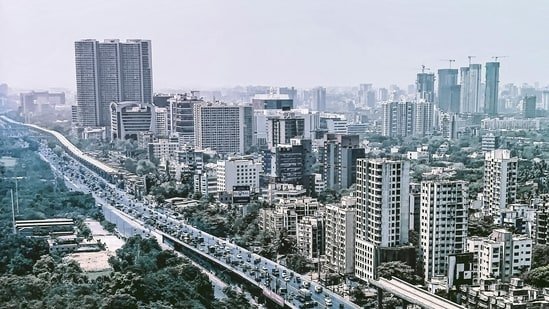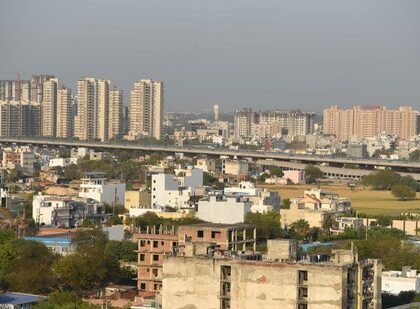Kunal Joshi, a homebuyer exploring options in Dahisar, at the northern edge of Mumbai, said he is finding larger apartments for the same price in areas farther from the railway station, driven by the anticipated boost from the upcoming Mumbai Coastal Road connectivity.
“Near Dahisar and Borivali stations, about 10–15 minutes away, a compact 2BHK of around 550 sq ft costs ₹1.20–1.60 crore. However, beyond the Link Road, closer to the creek where the Coastal Road is expected to come up in the next 7–10 years, apartments of 600–650 sq ft are available in the same price range,” Joshi said.
“The current challenges include poor road conditions and traffic congestion, which make travelling to Dahisar or Borivali stations take 15–30 minutes. The area remains relatively quiet at night compared to other localities, but developers are compensating by offering more space for the same price. While it may seem underdeveloped now, the locality holds strong future potential. Ultimately, my decision will depend on family discussions and balancing present convenience with long-term prospects,” he said, explaining the infrastructure-related pros and cons he is weighing before finalising an apartment.
Mumbai’s real estate market, long valued for its high property prices and strong demand, is increasingly being affected by the city’s infrastructure challenges. Frequent potholes, uneven roads, and repeated barricading for repair and maintenance have become daily concerns for residents, impacting both property values and buyer sentiment, experts told HT.com.
Previously, major infrastructure projects, such as the Atal Setu connecting Mumbai and Navi Mumbai, and the Mumbai Coastal Road linking Nariman Point with Worli, have experienced uneven patches, leading to sections being barricaded for repairs and maintenance.
Further, the Western Express Highway (WEH) and localities in the central and western suburbs, including Andheri, Ghatkopar, and Kandivali, have seen persistent road damage, particularly during the monsoon season, which hampers commuting and raises concerns about vehicle wear and tear.
Recently, a video of the Palava flyover in Thane district, near Mumbai, went viral on social media after reports highlighted that the flyover, completed after a seven-year delay, required maintenance just hours after opening.
Does road quality impact the real estate market?
According to real estate consultants, infrastructure projects, including road networks and metro lines, do impact home-buying decisions.
“Even if the apartment itself is perfect, the daily commute can become a nightmare due to poor roads, and this is often a key factor for homebuyers when making a decision. Potential buyers frequently reconsider properties in areas with bad road conditions, even if the prices are lower compared to better-maintained neighbourhoods,” said Tejas Vyas, a real estate consultant from Mumbai’s western suburbs.
“Historically, there is a segment of homebuyers who, despite promising future developments, prefer to stay away from major infrastructure projects. Their mindset is not to bet on the future, but to purchase apartments based on the current condition of the property and its surroundings,” Vyas said.
According to Vyas, investors bet on future developments, such as upcoming road projects and Metro projects. However, the end user considers both the social infrastructure and the physical infrastructure. Hence, it is not the case that properties with bad roads do not attract buyers at all.
What needs to be fixed to improve Mumbai’s road quality?
According to experts, Mumbai does have good roads; however, the roads where quality issues have surfaced are due to poor execution and supervision during the construction itself.
“Construction should strictly follow specifications, and work must not be rushed. Mumbai does have good roads, including the Bandra-Worli Sea Link and several others. My limited point is that contractors and authorities need to maintain strict oversight. While multiple agencies may be involved in Mumbai or other cities, proper execution and supervision during construction or repair work are the only solutions. The system is already in place, but we need to strengthen it to ensure better outcomes,” said Sudhir Badami, a Mumbai-based civil engineer and transportation analyst, and author of the book ‘Matter of Equitability: Making Commuting in Mumbai Enviable.’





